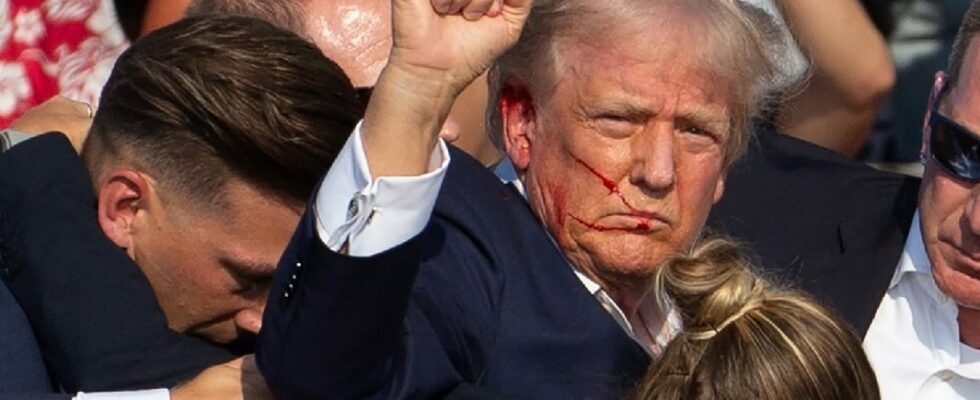Everyone has seen this incredible photo of Donald Trump, his ear covered in blood and his fist raised in resistance after being shot. The image is striking and will remain etched in our memories. Unsurprisingly, this assassination attempt has given rise to many interpretations, including the inevitable conspiracy theories. The term “staged” even became one of the trends on X-rated content in the United States just minutes after the shooting.
As always, without having a very clear theory, conspiracy theorists looked for “anomalies” that would reveal the truth hiding behind the appearance of events. Thus, we were surprised by the security flaws while we can easily imagine a very threatened Donald Trump; we wrongly claimed that there had been no panic movement. We could also be intrigued by the atypical profile of the shooter… Depending on whether we were left or right, we imagined a staging supposed to benefit Trump or, on the contrary, a real assassination attempt but fomented in reality by the CIA and the “deep state” (Deep State).
It was the Republican candidate’s supporters and, ultimately, Trump himself who proposed the most spectacular interpretation: that God himself intervened, not to hold the gun, but to push the bullet away. This is the version that is becoming popular among Republican supporters at rallies and on social media, and that Donald Trump is taking up on his own terms, declaring on Truth Social: “It was God alone who prevented the unimaginable from happening.” Seen from France, this reading of the event is exotic but it is not so surprising when we remember that the United States remains a very religious country where people often take an oath on the Bible and where the currency is minted with this declaration: “In God we trust“.
Apagogic method
There can be no proof of God’s intervention in this matter, but the absence of proof is not proof of absence. Let us therefore reason with the apagogic method. If God had really intervened to save Trump, why did he not do so sooner? Why did it take until there was one innocent victim and two injured for his hand to be extended? It is not credible that the Protestant God, to whom Trump refers, who is omniscient, was not alerted to the danger until the last minute.
Let us continue the apagogic reasoning: if He wanted to save Trump, it is because, in many other cases, He preferred to remain impassive. Thus, He would not have deigned to intervene to protect John F. Kennedy in 1963 or his brother Robert in 1968, any more than He did, the same year, to spare Martin Luther King who was nevertheless a pastor? And one would look in vain, among the countless political assassinations that have tainted human history, including Teti, the pharaoh who founded the 6th dynasty, Ramses III, Julius Caesar stabbed 23 times, Park Chung-hee, president of South Korea or Yitzhak Rabin whose sudden death in 1995 still has repercussions today on the Israeli-Palestinian conflict… for divine logic. Analysis of the statistics of these political assassinations reveals nothing other than the chaos of history.
The Failed Assassinations Against Hitler
Furthermore, if we were to examine Donald Trump’s argument that he felt God’s breath protecting him, then we would also have to consider all those who have survived an assassination attempt. Should we then also admit that God wanted Adolf Hitler to survive as he did – in sometimes improbable circumstances – the many assassination attempts that were made against him?
There is no need to decide the question of the existence of God to judge the hypothesis that he intervened to save Trump as inconsistent. On the other hand, one can find it sociologically interesting that a supernatural aura increasingly surrounds the path of the populist whose supporters now claim that he is the bearer of a mission rather than a program. “Being elected” can be interpreted in many ways; let us hope, for the sake of American democracy, that his voters will not get the meaning wrong.
*Gérald Bronner is a sociologist and professor at La Sorbonne University.
.
